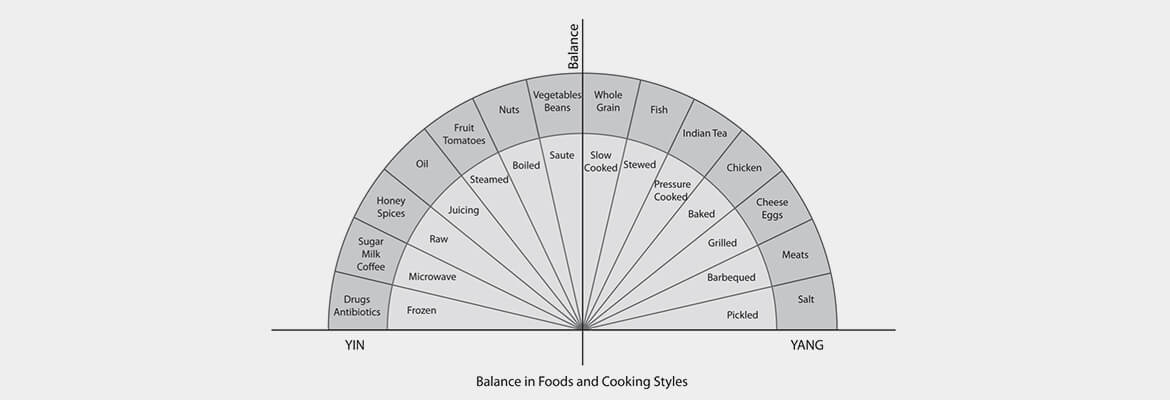How to keep the body in acid-alkaline balance
We have heard acid-alkaline balance many times over in the health industry, and we know now it forms the basis of good health and a stronger immunity. From a Macrobiotic perspective, George Ohsawa recognized and MichoKushi pioneers behind the Macrobiotic approach, realized this a long time ago. As did Ayurveda and Traditional Chinese medicine. In many ways Macrobiotics is the Modern-day Ayurveda. George Ohsawa did come to India and study the Charak Samhita the Ayurvedic texts to marry the two disciplines.
Tips for limiting acidic foods
In a vegan approach the starting point is eliminating wrong foods that are acid-forming like – sugar, dairy, jaggery (over-use), dairy, refined flour, processed/refined foods, refined oils, meats, poultry, eggs, junk, oily foods, cured meats and street foods.
What happens when you hare over-doing the wrong kinds of acid-forming, it does not serve the body to balance itself. Over acidic foods of the wrong nature, as stated above depletes minerals, as that’s what the body uses to redress the balance. This will lead to issues of bone weakness, aggravate arthritic conditions also cause leaky gut and affect the gut microbiome (causing loss of a good ecosystem). A general acidic condition is also thought to increase the risk of cancer, headaches, and overall reduce your resistance to infection. There is a constant dumping of toxins in the blood, and the blood gets viscousy.
Diet plan for a good alkaline-acid balance
It is easier for the body to balance foods that are closer to neutral and are from nature, than de-natured foods. See the balance chart below. Your diet must include alkaline foods, but also some acid forming foods of the right kind; it is advised adequate sources of both should be included. So here is what must be included –
- Whole grains like brown rice and millets (acid forming foods of the right nature).
- Lentil and legumes.
- Vegetables, with an emphasis on dark leafy greens.
- Fruits.
- Nuts and seeds.
- Good fats (avocados, walnuts, flaxseeds, olive oil, sunflower seeds, sesame oil).
Start by having roughly equal amounts of whole grains and vegetables and then use the good quality balancing food act for e.g., if you eat fish (more acid forming, but good) then include leafy greens (more alkaline) eating the fish with lemons or chopped almonds will make for balance and absorption of it better. Using millets and a daily bowl of soup with a variety of vegetables always help you stay more alkaline. Here is a chart to help you understand foods and habits that are alkaline and acid forming.
| MOSTLY ALKALINE | MODERTELY ALKALINE | SLIGHTLY ALKALINE | MUCOUS FORMING |
|---|---|---|---|
| Celery | Beans (pulses, dals) | Olives, eggplant, | Sweets made with |
| Herbal Teas | beetroot, sprouts, bananas, | millet, coconut (fresh) | sugar, honey, |
| Watermelon | asparagus, cauliflower, | cucumbers, honey (raw) | chocolates, refined |
| Lemons | green tea, radish, dates, | onions, sesame, spices | artificial sweeteners, |
| Mangoes | kiwi, peaches, ginger, lettuce | sprouted grains | meat, chicken, eggs, |
| Papaya | potatoes, corn, mushrooms, | tangerines, okra, | hydrogenated oils, |
| Grapes | veggie juices, apples, apricots, | radishes, miso, | mayonnaise, fried |
| Watercress | avocados, fruit juices (fresh) | buckwheat (kuttu), | (packaged foods), |
| Red Chilly | green tea, lettuce, pears, | cherries, leeks, okra | shortening, deep-fried |
| peppers, pineapple, potatoes | (bhindi), tomatoes, | packaged foods, baked | |
| (with skin), radish, pumpkin | sea salt, oranges, | packaged foods, cakes, | |
| (bhopla), mushrooms, corn, | pickles (home-made), | cookies (packaged), | |
| strawberries, turnips, herbs, | sesame seeds, tofu, | especially products with | |
| garlic | spy milk, spices, | yeast which includes | |
| SLIGHTLY ACIDIC | MODERATELY ACID FORMING | MOST ACID FORMING | all bread, rolled oats, |
| Eggs, kidney beans, | Honey, bran, cheese, dry | White bread, cakes, | oils (except olive) |
| pumpkin seeds, butter, | coconut, goats milk, pasta | cookies (packaged), | soy milk, or highly processed |
| barley, butter, beef, | (whole grain), grains (unrefined) | alcohol, soft drinks, | soy products (not tofu), |
| spinach | mustard, popcorn, prunes, | artificial sweeteners, | excessive fruit/fruit juices, |
| brown rice, tea, wheat, fish, | beef, pork, fish, | citrus fruits, soft drinks, | |
| eggs, nuts (except almonds), | sugar, dairy, molasses, | spritzers, beer, wine, | |
| maple syrup, fructose, popcorn, | table salt, Indian chai, | alcohol, overeating, | |
| ketchup, potatoes (peeled), | coffee, whole wheat | late-night eating, not | |
| prunes, tea, wheat bread, white | foods, coffee, fruit | chewing, skipping breakfast, | |
| or brown basmati rice | juices (packaged), | Snacking, cooking on high- | |
| yogurt (packaged), | heat | ||
| maida, peanuts. Indian | |||
| pickles, white rice, | |||
| table salt, vinegars | |||
| Indian tea, walnuts, any | |||
| whole wheat foods, | |||
| sweeteners, processed foods |
In conclusion, your diet if balanced changes blood condition and cellular condition (if it needs changing and renewing); this in turn impacts immunity. It takes 4 months to create good blood condition i.e., good acid-alkaline balance and 2 years to change your cellular health. So you can do it!

